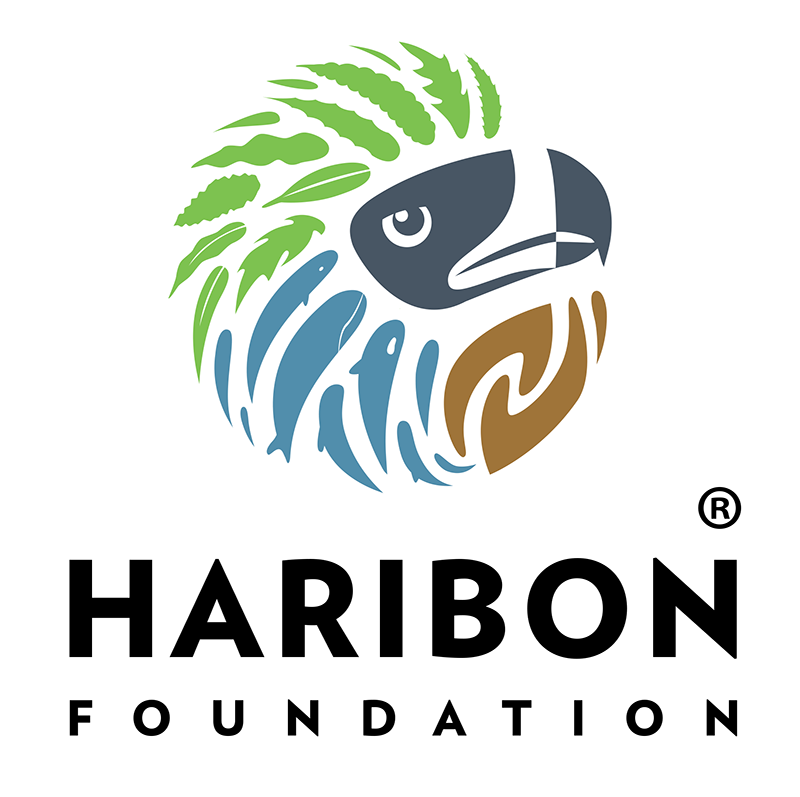HARIBON’s comprehensive Protected Area Governance (PAG) for Women Training Plan was designed as a coaching and mentoring program to equip women leaders in Presidential Proclamation No. 1636 (PP 1636) with the knowledge, skills, and attitude (KSA) that they need to become competent environmental conservation leaders at the forefront of environmental governance. After the third year of HARIBON’s Women Go project in 2022, these women completed the training, creating new champions for biodiversity and the natural ecosystems of PP 1636.
The PAG for Women Training Plan was specifically designed by the Women Go project for the women to have their own unique comprehensive capacity development curriculum that would ensure their effective transformation as leaders capable of taking on the responsibilities and challenges of protected area (PA) governance. The plan is anchored on the values of a biodiversity champion, defined by HARIBON as someone who embodies a lifestyle in harmony with nature while inspiring others to do the same.
Why do we need the PAG for Women Training Plan
To craft the plan, a Training Needs Analysis (TNA) was conducted by the project team, and they found gaps in the women’s knowledge, skills and perceptions that could hinder them from becoming skilled leaders who are confident in engaging in environmental governance. The objective of the plan therefore is to develop and strengthen the expertise of the women and their organizations that would fill those gaps and effectively lead PA management and governance of PP 1636.
The program aims and achieved the following:
- Developed and implemented modules and other learning materials through trainings, workshops, simulations, and other experiential learning exercises, and coaching and mentoring sessions focusing on the areas on the learning gaps identified in the TNA.
- Increased appreciation and participation of women in biodiversity conservation and PA management and governance, especially of PP 1636.
- Strengthened capacity of women to develop, promote and adopt community and livelihood projects that are gender-responsive, biodiversity-friendly, climate change adaptive and disaster resilient.
- Strengthened internal organizational capacity of the partner women’s organizations.
- Enhanced life skills of women to better engage in and govern the affairs of the family, community, and organization.
With this method, the team found the women reflecting the following competencies including (but not limited to):
- Sustainability principles
- Strategic management
- Collaboration
- Consensus building
- Appreciating diversity
- Communication
- Self-reflection and awareness (know thyself!)
The training plan focused on addressing the learning gaps such as:
- Biodiversity conservation and natural resource management
- Protected area governance
- Nature-based solutions to address the challenges of climate change adaptation and disaster risk reduction and management
- Gender and development
- Leadership and organizational management
- Sustainable livelihoods and biodiversity-friendly enterprises
- Life skills development
What are the PAG Women courses?
PAG Women Training Course 1
Foundation Courses: Biodiversity Conservation and Protected Area Governance
- Basic Ecology and Forest Conservation: A Training of Trainers
- Gender and Development in Protected Area Governance
PAG Women Training Course 2
Environmental Leadership and Organizational Management (ELOM)
- Team Building and Strategic Planning Workshop
- Developing the Biodiversity Champion: An Environmental Leadership and Organizational Management Training
- Financial Management and Record Keeping (ongoing)
PAG Women Training Course 3
Investing in Nature-based Solutions (NbS) to improve PA Governance in a Forest Landscape
- Understanding CCA and Eco-DRR in PA Governance
- Introduction to Vulnerability, Capacity, and Assessment
- Understanding Nature-based Solutions
- Sharing of local adaptation and experiences on NbS
- Conceptualizing initiatives for a local adaptation of NbS
PAG Women Training Course 4
Biodiversity-Friendly Enterprises / Sustainable Livelihoods
- Introduction to Biodiversity-Friendly Enterprises / Sustainable Livelihoods
- Feasibility Study
- Business Planning
- Partnerships Forum
- Other training activities to enhance technical skills to properly manage, sell, market, and improve products
PAG Women Training Course 5
Empowering Women through Life Skills Development
- (Co-) Leading the family in the 21st Century & the new normal
- Personality Development Skills (Communication Skills, Presentation Skills, Relationship Building Skills (Personal and Public)
- Goal Setting and Time Management Skills
- Problem-Solving Skills: Negotiation, Conflict Management & Resolution Skills
- Life Visioning
Women transformed
With their skills enhanced, the women leaders were able to actively engage in environmental governance with confidence. At the end of the project, women leaders are transformed into becoming change-makers, just and inclusive decision makers, sustainability enthusiasts, and members of society with a deep sense of commitment for conservation.
The Women Go project is made possible by the European Union in the Philippines, with the support of the Municipality of Real, Municipality of Infanta, Municipality of General Nakar, and the Department of Environment and Natural Resources - Community Environment & Natural Resources Office (DENR-CENRO) Real.
